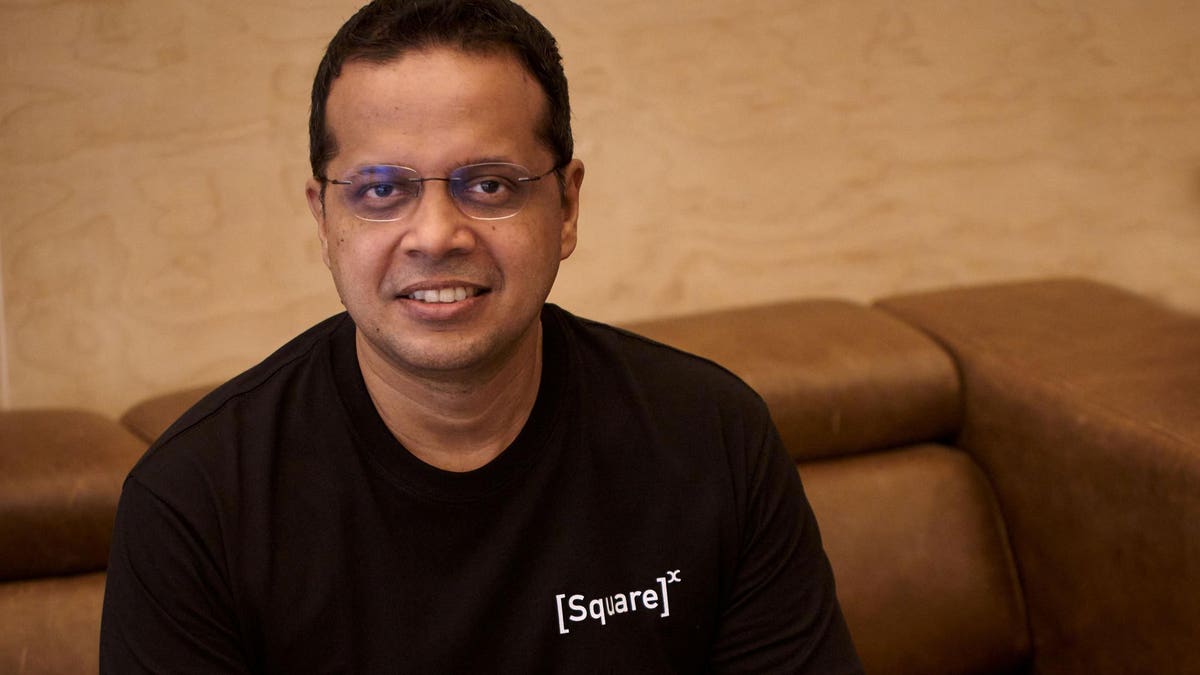“Conventional cyber-security products don’t work well for consumers because they get in the way,” says Vivek Ramachandran, founder and CEO of the Singapore-based start-up SquareX. “They’re so unproductive that many consumers end up simply uninstalling them,” he warns.
SquareX, which is today announcing a $6 million seed fund round, therefore takes a different approach to conventional cyber security products such as anti-virus software and firewalls. “Our tagline is that we allow consumers to be fearless online,” Ramachandran says. “We’ll never block a document you want to download or a web site you want to visit, even if it has a problem such as malware.”
In which case, how do consumers stay safe online? The answer is what SquareX describes as a disposable browser. Its technology works as an extension that you add to your existing browser of choice; each time you go online, you then have the option of doing so through one of SquareX’s disposable browsers – in which case you’ll be visiting sites and opening attachments in a secure space on the cloud, well away from your own device.
This approach is sometimes described as a remote browser by information security specialists. Conventional products work by blocking access to documents and sites regarded as potentially suspicious. By contrast, with a remote browser, you can open anything you like – and even work on it – because you’re doing so at arm’s length; the site or document never touches your device, so it doesn’t matter whether it’s full of malware and other nasties.
The advantage of the remote browser approach, SquareX believes, is that people can just get on with their lives without having to think about safety. In an era where more people are working remotely than ever, the way in which conventional cyber security products keep stopping you from accessing what you need online is a growing irritation, it argues. “Safety and security shouldn’t get in the way of productivity,” adds Ramachandran. “They should just be there in the background.”
The company is also keen to pitch its solution as an alternative to the virtual private networks (VPNs) through which many internet users now get online. VPNs enable people to go online anonymously without their data being tracked – as well as to access sites sometimes restricted to browsers from certain jurisdictions – but they can be slow and clunky. SquareX’s disposable browsers provide a different way of achieving the same goals.
If these ideas sound attractive, it’s worth noting that the market analyst Gartner identified remote browsers as an exciting growth area for cyber security as long ago as 2017. “Information security architects can’t stop attacks, but can contain damage by isolating end-user internet browsing sessions from enterprise endpoints and networks,” it points out.
So far, however, the concept has been relatively slow to take off, particularly in the consumer market. One recent study suggests the global market for remote browsers – dominated by corporate customers – is worth only $4.1 billion; however, the prediction is for average annual growth of 18% over the next decade, until the market is worth $22 billion in 2033.
Consumers can drive this growth, Ramachandran believes. The large players in the consumer security market have no incentive to take a new approach – to do so would risk cannibalising their existing market – but start-ups such as SquareX can have a significant impact. The company’s approach will be to target young internet users and early adopters, with influencer marketing seen as a potentially important way to get the message out.
The business has a freemium model. Users can install the SquareX extension on their browsers for free and use it for up to an hour each day at no cost. Those who want to spend longer using the application will pay a monthly fee of between $8 and $15, depending on their exact needs.
It’s a value proposition that SquareX’s investors think can gain traction quickly in this developing market. Today’s $6 million seed round is led by Sequoia Capital Southeast Asia, which hopes consumers will recognise that remote browsers offer more certainty.
“Every cyber security solution out there is only probabilistically successful in protecting internet users, which is not of much comfort if they get hacked and lose money,” argues Partner Anandamoy Roychowdhary. “SquareX is the first solution we’ve seen that takes a 100% protection approach – where irrespective of how new and sophisticated the attack is, it has no chance to infect users.”
Read the full article here




